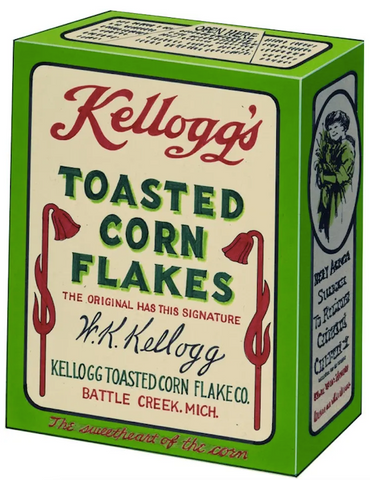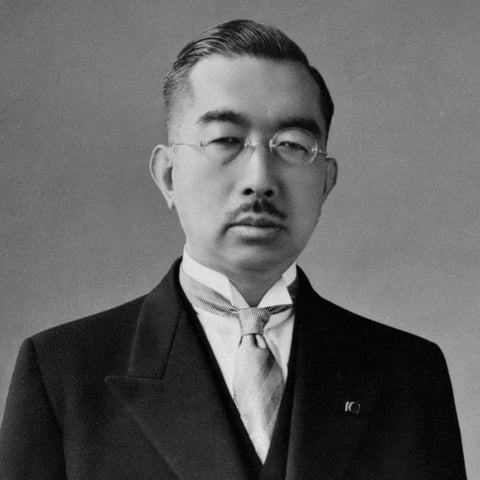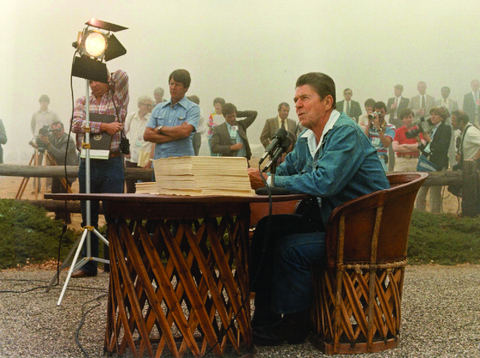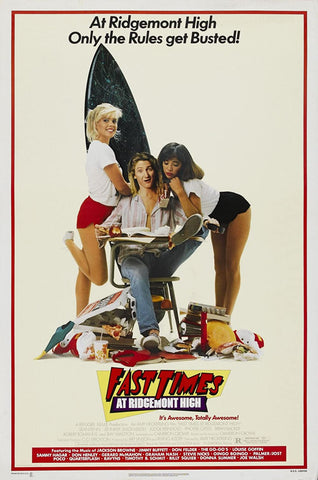August 7

1782
General George Washington, the commander in chief of the Continental Army, created the “Badge for Military Merit,” a decoration consisting of a purple, heart-shaped piece of silk, edged with a narrow binding of silver, with the word Merit stitched across the face in silver. The award was nearly forgotten about after the Revolutionary War, but reinstated in 1932 on Washington’s 200th birthday. The U.S. War Department announced the creation of the “Order of the Purple Heart." The Order of the Purple Heart, the oldest American military decoration for military merit, is awarded to member of the U.S. armed forces who have been killed or wounded in action against an enemy. It is also awarded to soldiers who have suffered maltreatment as prisoners of war.

1942
The U.S. 1st Marine Division begins Operation Watchtower, the first U.S. offensive of WWII, by landing on Guadalcanal, one of the Solomon Islands. Weeks earlier, the Japanese landed on Guadalcanal Island and began constructing an airfield there. Operation Watchtower was the codename for the U.S. plan to invade Guadalcanal and the surrounding islands. During the attack, American troops landed on five islands within the Solomon chain. The first Medal of Honor given to a Marine was awarded to Sgt. John Basilone for his fighting during Operation Watchtower. According to the recommendation for his medal, he “contributed materially to the defeat and virtually the annihilation of a Japanese regiment.”

1990
President George H.W. Bush ordered the organization of Operation Desert Shield in response to Iraq's invasion of Kuwait on August 2. The order prepared American troops to become part of an international coalition in the war against Iraq that would be launched as Operation Desert Storm in January 1991. On November 29, 1990, the United Nations Security Council authorized the use of “all means necessary” to remove Hussein’s forces from Kuwait, giving Iraq the deadline of midnight on January 16, 1991, to leave or risk forcible removal. After negotiations between U.S. Secretary of State James Baker and Iraq’s foreign minister, Tariq Aziz, failed, Congress authorized President Bush to use American troops in the coming conflict.

1998
A massive truck bomb exploded outside the U.S embassy in Nairobi, Kenya, followed by another truck bomb detonated out the U.S. embassy in Dar es Salaam, the capital in neighboring Tanzania. The dual terrorist attackes killed 224 people, including 12 Americans, and wounded more than 4,500. The United States accused Saudi exile Osama bin Laden of masterminding the bombings.
August 8

1898
Corn Flakes was invented by accident when Dr. John Kellogg and his younger brother, Will Keith Kellogg, left some cooked wheat out that soon became stale. The cereal soon became a diet mainstay for clean living at their Battle Creek Sanitarium in Michigan, a world-renowned health resort which was founded by the Seventh-day Adventist Church. The breakfast cereal proved popular among the patients and Kellogg subsequently started what became the Kellogg Company to produce corn flakes for the wider public. A patent for the process was granted in 1896, after a legal battle between the two brothers.

1974
President Richard M. Nixon announced his intention to become the first president in American history to resign. With impeachment proceedings underway against him for his involvement in the Watergate affair, Nixon was finally bowing to pressure from the public and Congress to leave the White House. “By taking this action,” he said in a solemn address from the Oval Office, “I hope that I will have hastened the start of the process of healing which is so desperately needed in America.” After taking the oath of office, President Ford spoke to the nation in a television address, declaring, “My fellow Americans, our long national nightmare is over.” He later pardoned Nixon for any crimes he may have committed while in office.

2009
Sonia Sotomayor is sworn in as an Associate Justice of the Supreme Court. Born in the Bronx to Puerto Rican parents, Sotomayor is the first Hispanic justice to serve on the nation's highest court. In addition to becoming the first Hispanic Supreme Court justice, Sotomayor was the third woman named to the bench. The following year, Justice Elena Kagan would become the fourth. Since her appointment, Sotomayor has been notable for her forceful dissent in several cases regarding racial discrimination, as well as siding with the majority in a 5-4 decision that upheld the Affordable Care Act.
August 9

1854
Henry David Thoreau's classic "Walden", or, "A Life in the Woods", was released. The American transcendentalist writer’s work is a first-person account of his experimental time of simple living at Walden Pond in Concord, Massachusetts, starting in 1845, for two years and two months. The book explores Thoreau’s views on nature, politics and philosophy. “I went to the woods because I wished to live deliberately, to front only the essential facts of life, and see if I could not learn what it had to teach, and not, when I came to die, discover that I had not lived,” he wrote.

1988
Edmonton Oilers center Wayne "The Great One" Gretzky is traded to the Los Angeles Kings. At age 27, Gretzky was already widely considered the greatest player in hockey history. Fan reaction to the trade ran the gamut from shocked and saddened to angry. After the announcement, Oilers owner Peter Pocklington defended the move by explaining that Gretzky had asked to be traded to Los Angeles. Gretzky himself explained the decision this way: “I felt I was still young enough and capable enough to help a new franchise win a Stanley Cup.” After saying the trade was made “for the benefit of Wayne Gretzky, my new wife and our expected child in the new year,” the hockey star then walked away from the microphone, overcome with emotion at leaving the city where he had established himself as a Canadian hero.

1995
Like his band the Grateful Dead, which was still going strong three decades after its formation, Jerry Garcia defied his life-expectancy not merely by surviving, but by thriving creatively and commercially into the 1990s—far longer than most of his peers. His long, strange trip came to an end, however, when he died on this day of a heart attack in a residential drug-treatment facility in Forest Knolls, California. A legendary guitarist and cultural icon, Jerry Garcia was 53 years old. During the final decade of Jerry Garcia’s life, following his recovery from a five-day diabetic coma in 1986, the Dead played an average of 100 to 150 live shows per year, frequently to sold-out audiences that included a significant proportion of tie-dye-wearing college students who were not yet alive when the Grateful Dead first made their name.
August 10

1945
Just a day after the bombing of Nagasaki, Japan submitted its acquiescence to the Potsdam Conference terms of unconditional surrender, as President Harry S. Truman ordered a halt to atomic bombing. Emperor Hirohito, having remained aloof from the daily decisions of prosecuting the war, rubber-stamping the decisions of his War Council, including the decision to bomb Pearl Harbor, finally felt compelled to do more. He implored the council to consider accepting the terms of the Potsdam Conference, which meant unconditional surrender. “It seems obvious that the nation is no longer able to wage war, and its ability to defend its own shores is doubtful.”

1981
Pete Rose of the Philadelphia Phillies got the 3,631st hit of his baseball career, breaking Stan Musial’s record for most hits by a National Leaguer. The record-breaking hit came in a game against the St. Louis Cardinals, the team with whom Musial had spent his entire career, and the former hits king was on hand to congratulate Rose. After he led off the inning with a single between third base and shortstop, the crowd rewarded him with a standing ovation, and Musial ran out to first base to offer his congratulations. Amazingly, it was only Rose’s 2,886th game; it had taken Musial 3,026 games to set the mark.

1984
The action thriller Red Dawn, starring Patrick Swayze, opened in theaters as the first movie to be released with a PG-13 rating. The Motion Picture Association of America (MPAA), which oversees the movie rating system, had announced the new PG-13 category in July of that same year. Founded in 1922 as a trade group for the American film industry, the MPAA introduced its first-ever movie rating system in November 1968. The system came in response to groups who wanted better guidelines for parents to determine whether or not a movie’s content and themes were child-appropriate.
August 11

1934
A group of federal prisoners classified as “most dangerous” arrives at Alcatraz Island, a 22-acre rocky outcrop situated 1.5 miles offshore in San Francisco Bay. The convicts—the first civilian prisoners to be housed in the new high-security penitentiary, especially those with a penchant for escape attempts—joined a few dozen military prisoners left over from the island’s days as a U.S. military prison. Later that month, more shiploads arrived, featuring, among other convicts, infamous mobster Al Capone. In September, George “Machine Gun” Kelly, another luminary of organized crime, landed on Alcatraz. In 1963, U.S. Attorney General Robert F. Kennedy ordered Alcatraz closed, citing the high expense of its maintenance. In its 29-year run, Alcatraz housed more than 1,500 convicts.

1973
The arguable birth of hip hop began at a birthday party at 1520 Sedgwick Avenue, an apartment building in the west Bronx, New York City. The man who was spinning records at that historic party was Clive Campbell—better known to history as DJ Kool Herc, founding father of hip hop. By the summer of 1973, DJ Kool Herc had been using and refining his break-beat style for the better part of a year. His sister’s party on August 11, however, put him before his biggest crowd ever and with the most powerful sound system he’d ever worked. It was the success of that party that would begin a grassroots musical revolution, fully six years before the term “hip hop” even entered the popular vocabulary.

2014
Robin Williams, the prolific Oscar-winning actor and comedian, died by suicide at 63. Along with acting, Williams was dedicated to various charitable causes that helped homeless people and those suffering through metal illness. He was a regular on USO tours, entertaining American troops around the world. In his stand-up routines, Williams spoke openly about his experiences with substance abuse and sobriety. After Williams died, tributes poured in from the Hollywood community and beyond. Then-president Barack Obama said: “[He] was an airman, a doctor, a genie, a nanny, a president, a professor, a bangarang Peter Pan and everything in-between. But he was one of a kind. He arrived in our lives as an alien—but he ended up touching every element of the human spirit.”
August 12

1939
The Wizard of Oz, starring Judy Garland and featuring words and music by E.Y. “Yip” Harburg and Harold Arlen, premiered in Oconomowoc, Wisconsin. First published in 1900, The Wonderful Wizard of Oz was adapted numerous times for the stage and screen prior to 1939. However, that year’s film adaptation earned Baum’s work a permanent place in cinema and music history. Not only did Judy Garland’s signature song, “Over The Rainbow,” earn Harold Arlen and Yip Harburg the Oscar for Best Song at the 1940 Academy Awards, but it quickly became an indispensable standard in the American Songbook, later being acknowledged as the #1 song on the “Songs of the Century” list compiled in 2001 by the Recording Industry Association of America and the National Endowment for the Arts.

1973
American golfer Jack Nicklaus won the Professional Golfers’ Association (PGA) championship for his 14th major title, surpassing Bobby Jones’ record of 13 major championships. The “Golden Bear” went on to win 18 major tournaments, a record that still stands today. A member of the World Golf Hall of Fame since 1974, the PGA named him Golfer of the Century in 1988. He joined the Senior tour in 1990, winning the U.S. Senior Open in 1991 and 1993. Throughout his career, Nicklaus also designed many noted golf courses, including Muirfield Village Golf Course in Ohio, site of the Nicklaus-sponsored Memorial Tournament. In 2005, Nicklaus announced he was retiring from professional tournament play after that year’s British Open.

1990
Fossil hunter Susan Hendrickson discovered three huge bones jutting out of a cliff near Faith, South Dakota. They turned out to be part of the largest-ever Tyrannosaurus rex skeleton ever discovered, a 65 million-year-old specimen dubbed Sue, after its discoverer. Amazingly, Sue’s skeleton was over 90% complete. Sue’s extraordinarily well-preserved bones have allowed scientists to determine many things about the life of T.rex. They have determined that the carnivorous dinosaur had an incredible sense of smell, as the olfactory bulbs were each bigger than the cerebrum, the thinking part of the brain. In addition, Sue was the first T.rex skeleton to be discovered with a wishbone, a crucial discovery that provided support for scientists’ theory that birds are a type of living dinosaur.
August 13

1981
At his home in CA, Ronald Reagan signed the Economic Recovery Tax Act, a historic package of tax and budget reductions that set the tone for his administration’s overall economic policy. During his campaign for the White House in 1980, Reagan argued on behalf of “supply-side economics,” the theory of using tax cuts as incentives for individuals and businesses to work and produce goods (supply) rather than as an incentive for consumers to buy goods (demand). His tax program undoubtedly set in motion powerful forces of change that would result in both short- and long-term economic gainsCritics of so-called “Reaganomics” point out that his tax cuts and the effects of steady economic growth disproportionately benefitted the wealthy, and vastly increased the gap between the nation’s rich and poor.

1982
The teenage coming-of-age comedy Fast Times at Ridgemont High opened in theaters around the United States. Written by Cameron Crowe and directed by Amy Heckerling, the film follows a year in the life of high school students and their teachers. The ensemble cast featured the (then relatively unknown) future A-list actors Sean Penn, Nicolas Cage and Forest Whitaker. Fast Times at Ridgemont High marked Cameron Crowe’s feature-film debut as a writer and was based on a 1981 book of the same name that he penned after going undercover to research it at a San Diego high school. His other films include Jerry Maguire, Almost Famous, Vanilla Sky, Elizabethtown, Aloha and more.

1995
Former New York Yankees star Mickey Mantle dies of liver cancer at the age of 63. While “The Mick” patrolled center field and batted clean-up between 1951 and 1968, the Yankees won 12 American League pennants and seven World Series championships. Mantle made his debut for the Yankees in 1951 at age 19, playing right field alongside aging center fielder Joe DiMaggio. After years of brilliance, Mantle’s career began to decline by 1967, and he was forced to move to first base. The next season would be his last. Mantle was elected to the Baseball Hall of Fame in 1974 in his first year of eligibility. At the time of his death Mantle held many of the records for World Series play, including most home runs (18), most RBIs (40) and most runs (42).




